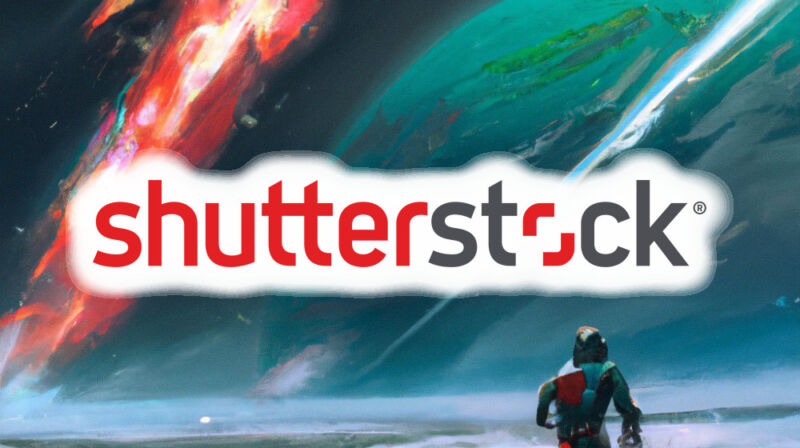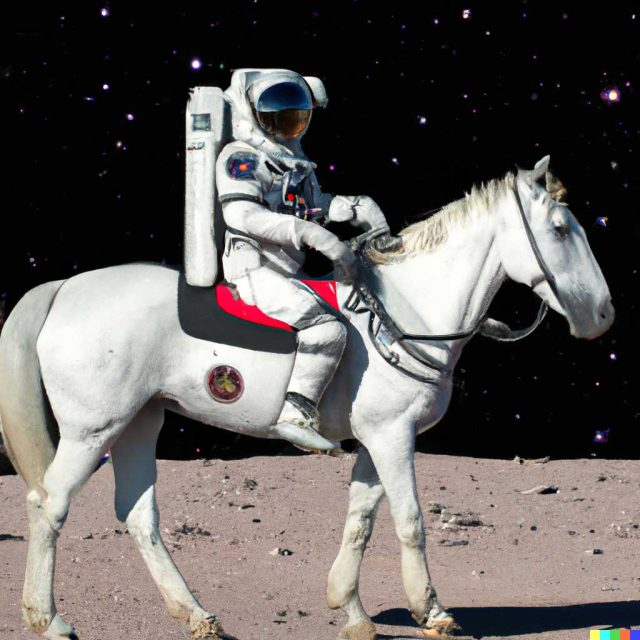
Today, Shutterstock announced that it has partnered with OpenAI to provide AI image synthesis services using the DALL-E API. Once the service is available, the firm says it will allow customers to generate images based on text prompts. Responding to prevailing ethical criticism of AI-generated artwork, Shutterstock also says it will compensate artists “whose works have contributed to develop the AI models.”
DALL-E is a commercial deep learning image synthesis product created by OpenAI that can generate new images in almost any artistic style based on text descriptions (called “prompts”) by the person who wants to create the image. If you type “an astronaut riding a horse,” DALL-E will create an image of an astronaut on a horse.
DALL-E and other image synthesis models, such as Midjourney and Stable Diffusion, have ignited a passionate response from artists who fear their livelihoods might be threatened by the new technology. In addition, the image synthesis models have “learned” to generate images by analyzing the work of human artists found on the web without the artist’s consent.
The new partnership with OpenAI will bring DALL-E’s AI image generation capability (which is available from OpenAI separately) to Shutterstock.com itself, so customers of the site can create novel images that might not be present in the site’s stock photography and artwork library.
Shutterstock’s announcement came in the form of a press release, also reported on by The Verge. In the release, a statement from OpenAI CEO Sam Altman revealed that the firm licensed imagery from Shutterstock to train DALL-E beginning in 2021. “The data we licensed from Shutterstock was critical to the training of DALL-E,” Altman said. To our knowledge, OpenAI has not previously revealed if they licensed any training material or if it came entirely from unauthorized web scrapes.
Even as Shutterstock publicly embraces AI generative and editing tools, The Verge reports that the firm will not allow contributors to sell AI-generated artwork that has not been created using its partnership with OpenAI, citing copyright concerns over the provenance of images used to train non-DALL-E image models.
Artist compensation

In light of widespread ethical concerns raised by artists, Shutterstock seems to have formulated its announcement message to potentially deflect criticism from its adoption of AI synthesis. For example, when the DALL-E integration launches on Shutterstock.com in “the coming months,” Shutterstock says that contributors will be “compensated for the role their content played in the development of this technology.”
Shutterstock’s statement did not provide further details on how the compensation scheme would work, but James Vincent of The Verge spoke with a Shutterstock spokesperson who described a “revenue share compensation model” in which Shutterstock contributors whose content helped train generative models will receive “a share of the entire contract value paid by platform partners” proportionate to the amount of their content in the “purchased datasets.” Payouts will occur every six months. This sets up a system whereby Shutterstock can license its photo and artwork catalog to firms like OpenAI to train their models.
Meanwhile, as Shutterstock moves toward selling AI-generated artwork with open arms, competitor Getty Images is taking a different approach, as reported by The Verge in a separate piece. In an interview with the outlet, Getty Images CEO Craig Peters expressed caution about embracing AI-generated artwork too quickly due to unresolved copyright issues. “I think we’re watching some organizations and individuals and companies being reckless,” Peters said. “I think that’s dangerous. I don’t think it’s responsible. I think it could be illegal.”
Getty Images banned the sale of AI-generated artwork through its service in September, but The Verge reports that Getty is partnering with an Israeli firm called Bria to provide AI-powered editing tools that can alter the content of existing images, such as changing a person’s expression or skin color. Expect further moves from both artists and competitors alike as the community reacts to the news in this rapidly developing field.
